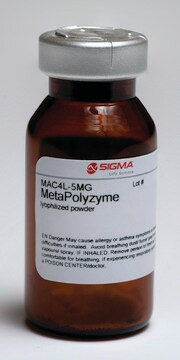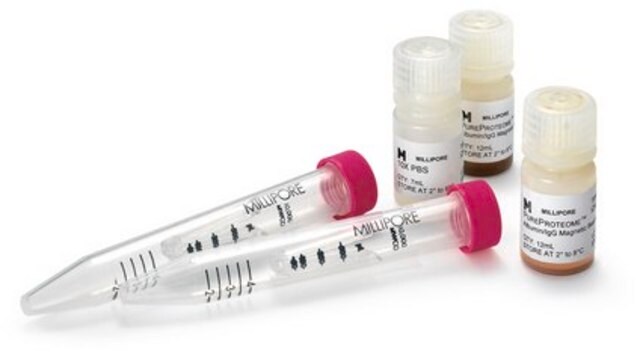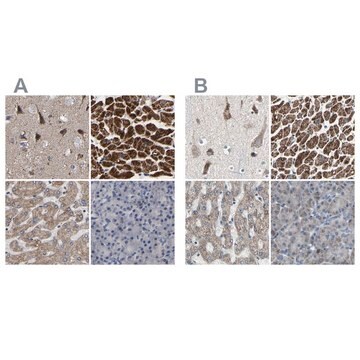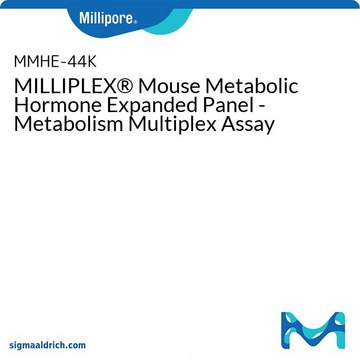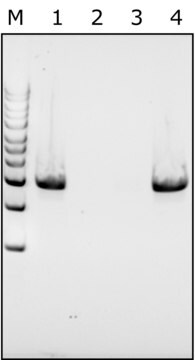MAC4LRI
MetaPolyzyme with RNase inhibitor
Lytic enzyme mixture for RNA extraction
Sinónimos:
Multilytic Enzyme Mix suitable for RNA isolation
Iniciar sesiónpara Ver la Fijación de precios por contrato y de la organización
About This Item
Código UNSPSC:
12352204
Productos recomendados
Nivel de calidad
Formulario
lyophilized powder
técnicas
DNA extraction: suitable
idoneidad
suitable for microbiology
aplicaciones
microbiology
Condiciones de envío
wet ice
temp. de almacenamiento
-10 to -25°C
Descripción general
A common difficulty among microbiome scientists is to extract nucleic acids from difficult to lyse microbes that form capsules or highly resistant spores. Some microbes are difficult to disrupt because the cell walls may form capsules or resistant spores. To address this challenge, protocols that integrate lysing enzymes can be incorporated into the nucleic acid extraction workflow.
Aplicación
Isolating RNA from microbiome samples poses many challenges. RNA molecules are highly labile and are prone to degradation by contaminating RNases. As such, to adapt the MetaPolyzyme for RNA isolation, a broad range RNase inhibitor has been incorporated in order to help prevent RNA degradation by various RNases. MAC4LRI, includes all 6 enzymes from MetaPolyzyme to ensure maximal lysis of microorganisms while protecting the sample RNA from degradation. While it is not possible to inhibit all RNases from a specific microbial environment, we haver incorporated a proprietary RNase Inhibitor to help inhibit as many RNases as possible.
The MetaPolyzyme product family includes MAC4L, MAC4LDF (DNA-Free), SAEO200 (MycoPolyzme, for yeast and fungal lysis, DNA-Free) and MAC4LRI (RNase Inhibitor) and are based on a multi-lytic enzyme mixture formulated for effective lysis of microbiome samples from any sample type. Originally, MetaPolyZyme was developed by Scott Tighe for use on samples from extreme environments and general applications to increase DNA extraction efficiency for any method. To date, these products have been further evaluated and continuously developed in consultation and collaboration with the Association of Biomolecular Resource Facilities (ABRF) Metagenomics and Microbiome Research Group (MMRG; formerly the Metagenomics Research Group, MGRG). Several publications have cited use of MetaPolyzyme, suggesting various advantages to the usage of MetaPolyzyme for enhancing bacterial lysis.
The MetaPolyzyme product family includes MAC4L, MAC4LDF (DNA-Free), SAEO200 (MycoPolyzme, for yeast and fungal lysis, DNA-Free) and MAC4LRI (RNase Inhibitor) and are based on a multi-lytic enzyme mixture formulated for effective lysis of microbiome samples from any sample type. Originally, MetaPolyZyme was developed by Scott Tighe for use on samples from extreme environments and general applications to increase DNA extraction efficiency for any method. To date, these products have been further evaluated and continuously developed in consultation and collaboration with the Association of Biomolecular Resource Facilities (ABRF) Metagenomics and Microbiome Research Group (MMRG; formerly the Metagenomics Research Group, MGRG). Several publications have cited use of MetaPolyzyme, suggesting various advantages to the usage of MetaPolyzyme for enhancing bacterial lysis.
Características y beneficios
- Disrupts difficult to lyse microbe samples
- Protects RNA from degradation
Palabra de señalización
Danger
Frases de peligro
Consejos de prudencia
Clasificaciones de peligro
Resp. Sens. 1
Código de clase de almacenamiento
11 - Combustible Solids
Clase de riesgo para el agua (WGK)
WGK 3
Punto de inflamabilidad (°F)
Not applicable
Punto de inflamabilidad (°C)
Not applicable
Elija entre una de las versiones más recientes:
Certificados de análisis (COA)
Lot/Batch Number
Lo sentimos, en este momento no disponemos de COAs para este producto en línea.
Si necesita más asistencia, póngase en contacto con Atención al cliente
¿Ya tiene este producto?
Encuentre la documentación para los productos que ha comprado recientemente en la Biblioteca de documentos.
Nuestro equipo de científicos tiene experiencia en todas las áreas de investigación: Ciencias de la vida, Ciencia de los materiales, Síntesis química, Cromatografía, Analítica y muchas otras.
Póngase en contacto con el Servicio técnico
